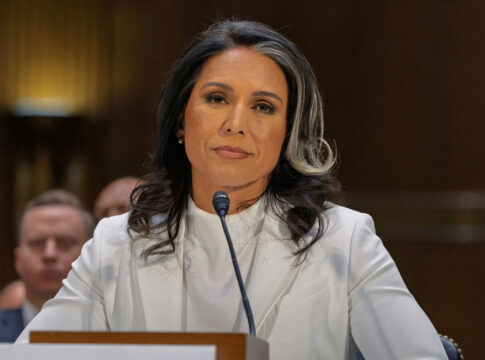A radical overhaul of the Office of the Director of National Intelligence threatens to shake up the intelligence community, promising significant budget savings and a shift away from politicization.
ODNI 2.0: A New Era of Intelligence
On August 20, 2025, Tulsi Gabbard, Director of National Intelligence, announced a sweeping reform of the Office of the Director of National Intelligence (ODNI), termed “ODNI 2.0.” This reform aims to address bureaucratic bloat and politicization by cutting staff by over 40% and closing centers accused of partisanship. The changes are projected to save taxpayers over $700 million annually, marking the most significant restructuring in the agency’s history.
Established in 2004 post-9/11, ODNI was created to unify intelligence across 18 agencies and provide oversight. However, it has faced criticism for expanding bureaucracy and being embroiled in politicization, particularly following the 2017 Russia assessment controversy. Gabbard’s reforms seek to restore the agency’s integrity and focus on its core mission, enhancing efficiency and reducing unnecessary layers of management.
Technological Modernization and Cost Efficiency
Central to the ODNI 2.0 initiative is the integration of advanced technologies, including AI and quantum computing, aiming to modernize intelligence operations. The consolidation of the National Intelligence University with the National Defense University is part of this push towards streamlining and efficiency. Such technological advancements are expected to enhance data processing capabilities, contributing to a more agile and responsive intelligence operation.
The reform also involves the closure of the External Research Council and the Strategic Futures Group, centers accused of partisanship. These closures are intended to eliminate politically influenced intelligence assessments and ensure that the information provided to policymakers is objective and reliable. This move is seen as a step towards depoliticizing intelligence and focusing resources on unbiased analysis.
Implications for the Intelligence Community
The immediate effect of these reforms is a significant workforce reduction, impacting ongoing projects and research within ODNI. While the downsizing may disrupt certain operations, the long-term goal is to enhance the agency’s focus on its primary mission of integrating and overseeing intelligence activities. The reforms are anticipated to result in improved public trust if successful in curbing politicization and enhancing fiscal discipline.
Tulsi Gabbard says ODNI 2.0 ‘will save taxpayers $700 million every year’ https://t.co/gyog1IV2Qk pic.twitter.com/ytThFbqHJY
— Doug Bell (@therealdougbell) August 21, 2025
However, critics caution that such rapid downsizing could undermine the agency’s analytic capacity and oversight functions. The balance between reducing bureaucratic layers and maintaining effective intelligence operations remains a concern for many within the community. As the Trump administration supports these changes, the broader impact on national security and intelligence quality will be closely monitored, particularly as the agency navigates the integration of new technologies.
Sources:
ABC News – Gabbard to Slash Director of National Intelligence Staff by 50%
ODNI Press Release – ODNI 2.0 Announcement
CBS News – Gabbard Cutting Director of National Intelligence Staff by Over 40%

